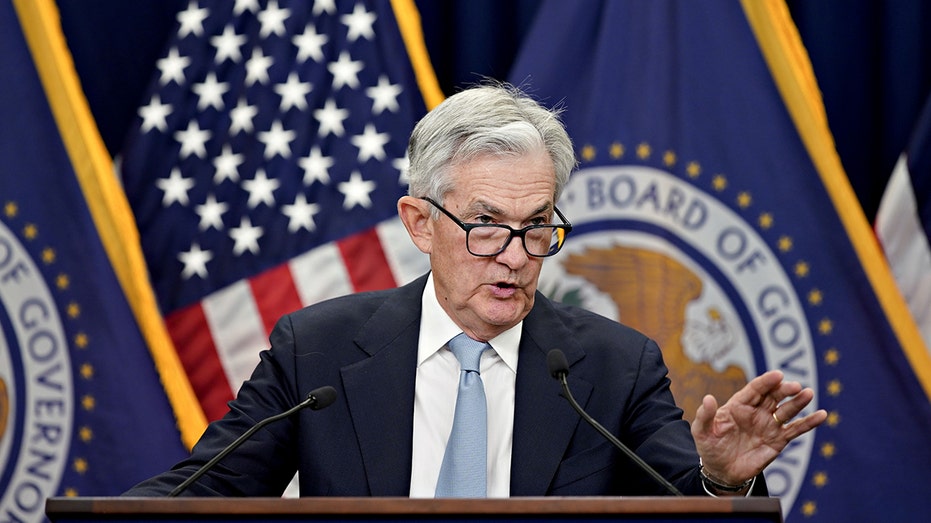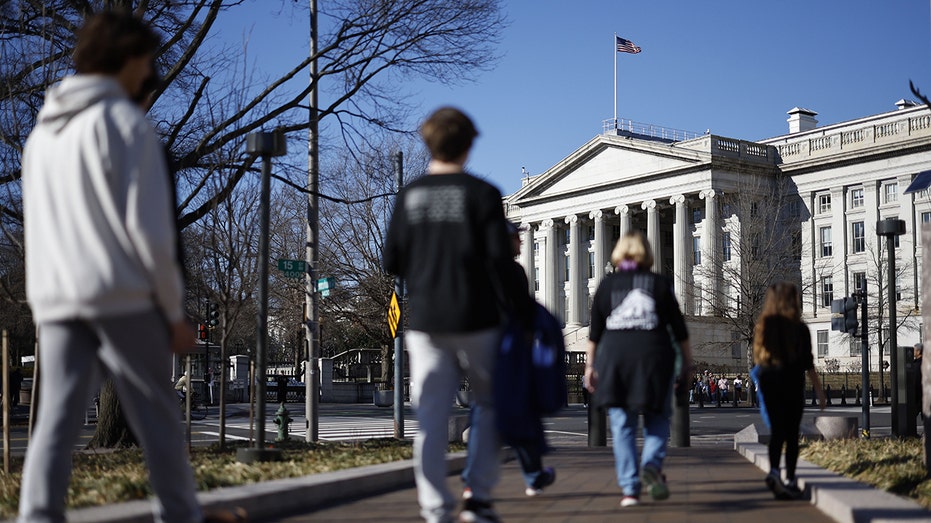Fed likely to hike interest rates again, then signal a pause in its inflation fight
Fed's Powell may signal end to interest rate hike campaign as inflation cools
What to expect from the Federal Reserve's rate hike decision Wednesday
Financial expert Elizabeth Evans gives an economic outlook and discusses futures market pricing before the Federal Reserve's expected rate hike Wednesday on 'Making Money with Charles Payne.'
The Federal Reserve is on track to raise interest rates for the 10th straight time Wednesday, but the end may finally be in sight for the fastest tightening campaign since the 1980s.
The U.S. central bank is widely expected to lift the federal funds rate by a quarter-percentage point at the conclusion of its two-day meeting then hint at a long-awaited pause in rate hikes.
The move would set the federal funds rate between 5% to 5.25%, further restricting economic activity as the borrowing costs for homes, cars and other items march higher. It would mark the highest rate since 2007.
FUND MANAGERS WORRY SYSTEMIC CREDIT CRUNCH COULD CRASH US MARKETS
Policymakers projected a peak rate of 5.1% during their March meeting.
But Wall Street is even more focused on Chairman Jerome Powell's press conference at 2:30 p.m. ET for additional clues about what comes next in the Fed's inflation fight. Powell may signal that rate hikes could soon stop, but many economists anticipate he will try to a strike a more ambiguous tone that neither rules out nor sets up another increase down the road.
"While the committee and Powell in his post statement press conference will eschew any idea that a pause is a foregone conclusion, the language put forward in both the statement and the presser will likely set the stage for a one-month period where the hawks and doves will duke it out over the June policy decision," said Joe Brusuelas, RSM chief economist. "We believe that a rate hike at the June meeting remains a distinct possibility."
JAMIE DIMON WARNS BANKING CRISIS HAS RAISED ODDS OF RECESSION

Jerome Powell, chairman of the U.S. Federal Reserve, speaks during a news conference following a Federal Open Market Committee meeting in Washington, D.C., March 22, 2023. (Al Drago/Bloomberg via Getty Images / Getty Images)
The meeting comes in the shadow of continued volatility within the financial sector, after the third implosion of a U.S. bank on Monday. First Republic, a San Francisco-based bank that catered to the wealthy, was seized by federal regulators and sold to JPMorgan Chase Monday.
Despite concerns that the banking turmoil could severely tighten credit for U.S. households and small businesses, the Fed is expected to forge ahead with its inflation fight Wednesday.
During a credit crunch, banks significantly raise their lending standards, making it difficult to get a loan. Borrowers may have to agree to more stringent terms like high interest rates as banks try to reduce the financial risk on their end. Fewer loans, in turn, lead to less big-ticket spending by consumers and businesses.

Pedestrians near the U.S. Treasury building in Washington, D.C., Dec. 30, 2022. (Ting Shen/Bloomberg via Getty Images / Getty Images)
While that could help the Fed in its fight to tamp down stubbornly high inflation, it also raises the risk of a recession this year.
CLICK HERE TO READ MORE ON FOX BUSINESS
"The major question for the Fed isn’t whether it should pause its tightening cycle but whether it will," said Gregory Daco, EY chief economist. "And legacy may be the defining factor. Fed Chair Powell and most policymakers do not want their legacy to be a failure to bring inflation down to the 2% target."
Inflation showed welcome signs of cooling in March, according to Labor Department data released last month. But core prices pointed to strong underlying price pressures that are still bubbling beneath the surface. The consumer price index remains about three times higher than the pre-pandemic average, underscoring the persistent financial burden high prices have placed on millions of U.S. households.





















